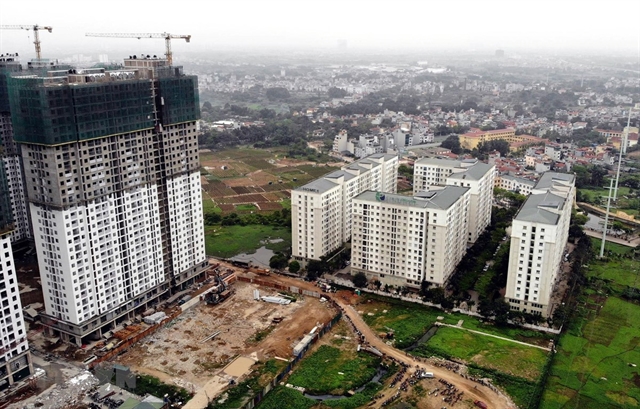More drastic reforms of construction-related administrative procedures must be carried to improve transparency and reduce costs for enterprises.

More drastic reforms of construction-related administrative procedures must be carried to improve transparency and reduce costs for enterprises, heard a conference organised by the Viet Nam Chamber of Commerce and Industry (VCCI), the Ministry of Construction and the Friedrich Naumann Foundation in Ha Noi last week.
Hoang Quang Phong, the VCCI’s Deputy Chairman, said enterprises implementing construction works were still facing with a lot of difficulties in administrative procedures.
Administrative procedures must be carried out with different State management agencies at different levels and for different stages, from policy approval, land handover, land clearance to construction progress.
There were overlaps and inconsistencies in construction-related administrative procedures which caused a waste of time and pushed up costs for enterprises, Phong said.
According to Dau Anh Tuan, head of the VCCI’s Legal Department, construction inspections remained a burden for enterprises, he said, citing findings that 38.2 per cent of enterprises were not satisfied with inspections carried out by State management agencies due to overlaps in inspections and difficulties caused by inspectors.
Tuan said it was necessary that inspectors at different administrative levels worked with each other to prevent overlaps in inspections and that transparency in inspections must be improved.
He added that inspections in the construction sector should be carried out following a risk-based approach, which was now used by the tax and customs agencies, stressing that risked-based inspection would help save time and reduce costs.
The VCCI’s survey of 10,000 enterprises (82 per cent of them were private and 18 per cent were foreign-invested companies) found private companies did not have experiences as good as foreign direct investment (FDI) companies in term of construction administrative procedures, which showed localities were offering FDI companies more preferential policies to attract foreign investment.
Micro and small-sized enterprises were found to face the greatest difficulties in carrying out construction-related administrative procedures, the report pointed out. In addition, 23 per cent of enterprises did not agree that administrative procedures were handled on time following established regulations.
Informal charges were also a burden for enterprises in applying for construction permits, the survey found, adding that time to receive construction permits must be shortened. About 25 per cent of enterprises said they could not fully access instructions to conduct administrative procedures in the construction sector.
Tuan said that the legal system in construction and relevant sectors must be reviewed for amendments to save time and costs for enterprises.
Promoting the provision of online public services with cashless payment was also important to prevent informal charges, he said.
It was also important to improve the transparency in receiving and handling construction procedures together with applying information technology in handling administrative procedures, Tuan said. — VNS





